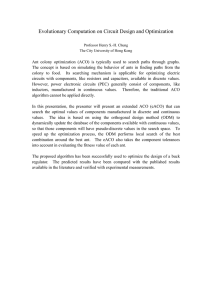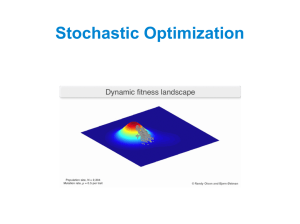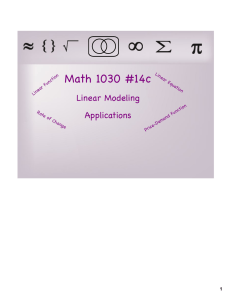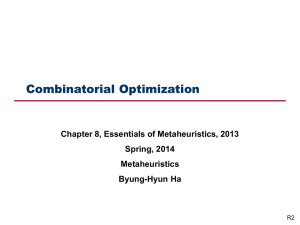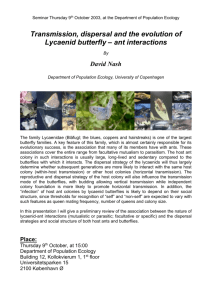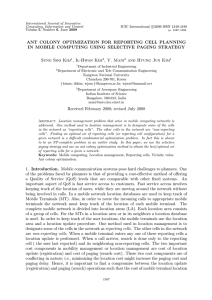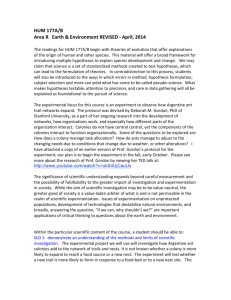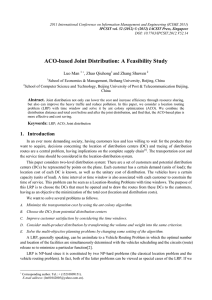How to cut the electric bill in backbone networks by using ant
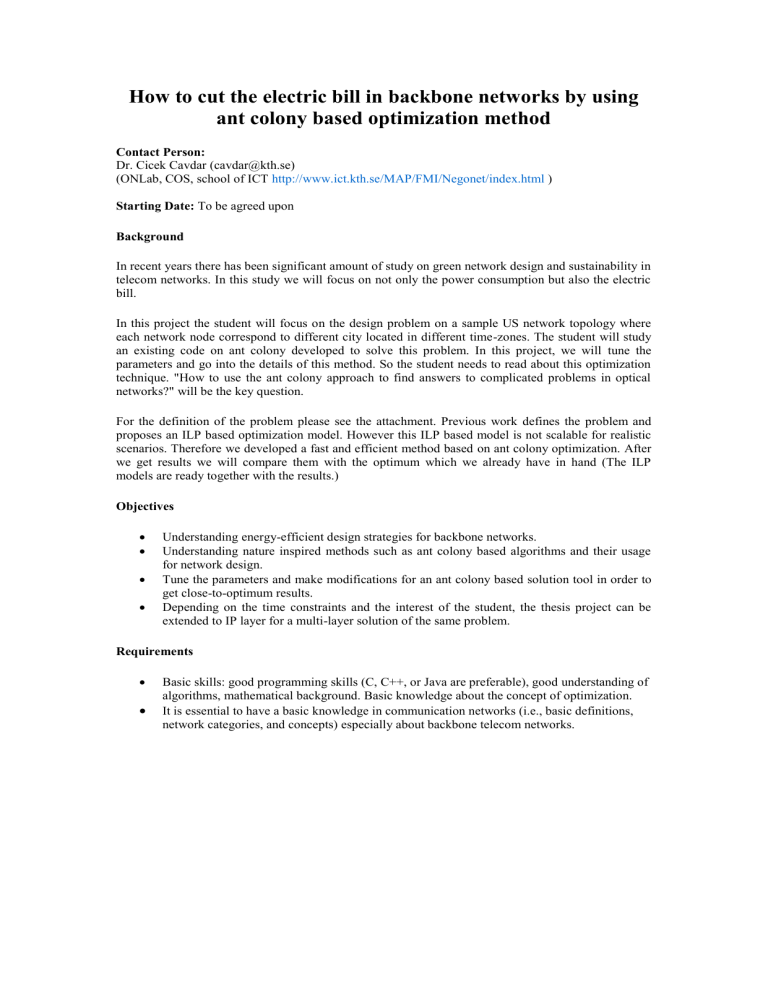
How to cut the electric bill in backbone networks by using ant colony based optimization method
Contact Person:
Dr. Cicek Cavdar (cavdar@kth.se)
(ONLab, COS, school of ICT http://www.ict.kth.se/MAP/FMI/Negonet/index.html
)
Starting Date: To be agreed upon
Background
In recent years there has been significant amount of study on green network design and sustainability in telecom networks. In this study we will focus on not only the power consumption but also the electric bill.
In this project the student will focus on the design problem on a sample US network topology where each network node correspond to different city located in different time-zones. The student will study an existing code on ant colony developed to solve this problem. In this project, we will tune the parameters and go into the details of this method. So the student needs to read about this optimization technique. "How to use the ant colony approach to find answers to complicated problems in optical networks?" will be the key question.
For the definition of the problem please see the attachment. Previous work defines the problem and proposes an ILP based optimization model. However this ILP based model is not scalable for realistic scenarios. Therefore we developed a fast and efficient method based on ant colony optimization. After we get results we will compare them with the optimum which we already have in hand (The ILP models are ready together with the results.)
Objectives
Understanding energy-efficient design strategies for backbone networks.
Understanding nature inspired methods such as ant colony based algorithms and their usage for network design.
Tune the parameters and make modifications for an ant colony based solution tool in order to get close-to-optimum results.
Depending on the time constraints and the interest of the student, the thesis project can be extended to IP layer for a multi-layer solution of the same problem.
Requirements
Basic skills: good programming skills (C, C++, or Java are preferable), good understanding of algorithms, mathematical background. Basic knowledge about the concept of optimization.
It is essential to have a basic knowledge in communication networks (i.e., basic definitions, network categories, and concepts) especially about backbone telecom networks.
